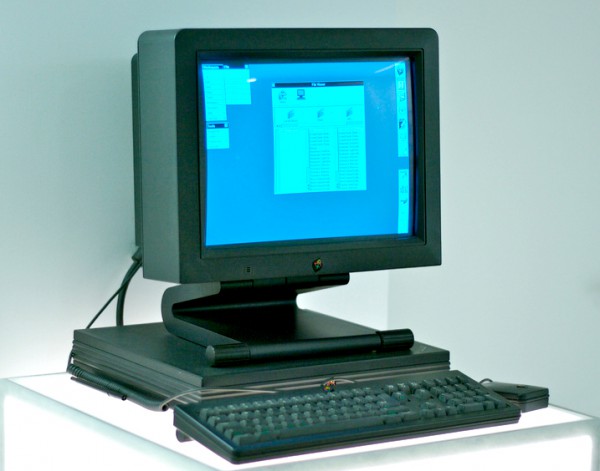Now that the Commodore 64 has been revived, isn’t it time for the NeXT Computer to make a comeback?
NeXT was the computer system that Steve Jobs created during his years in exile from Apple in the late 1980s. Not only was the NeXT console stylistically beautiful, its processing system was also way ahead of its time. It was used by scientists and programmers to make major breakthroughs in computing. The World Wide Web was born on a NeXT. Its operating system, NeXTSTEP, was acquired by Apple and became the basis of the Mac OS X operating system. Jobs himself was reunited with Apple during the same acquisition; without NeXT, we might not have any of the Itoys and distractions of the modern day.
- – -
Although it was embraced by nerds, NeXT was a commercial failure and was discontinued in 1993. Jobs survived NeXT’s demise; many others did not.
I first heard about NeXT while interviewing Mike Parker, a typographic historian who had unveiled a mystery behind the font Times New Roman.
Parker was one of the most influential figures in the world of fonts. As the type director of Linotype from the 1950s until the 1970s, he held immense influence over the visual landscape of letters, through his control of the fonts available to the majority of printers in the U.S. It was Parker’s decision to add Helvetica to the Linotype library, creating a design legacy that lasts even to this day.
In the late 1970s, when the development of photo and digital typesetting spelled the extinction of hot metal presses, Parker left Linotype to set up Bitstream, one of the first digital type libraries. In the late 1980s, as Steve Jobs was building NeXT, Parker was persuaded to invest his personal fortune developing an interface-driven word processing system for the NeXT Computer called Pages. When NeXT failed, Jobs, offered Parker an apologetic buy-out of $5000 for Pages. Parker sadly accepted. Several years later, Jobs took the software Parker had sold him for next-to-nothing back to Apple and made a fortune from it. Pages is still being used today as a layout builder for the Ipad.
“I’m glad to hear it’s still being used,” Parker said, with unconvincing optimism. For Parker, the collapse of NeXT was a personal financial disaster: “I lost my shirt.”
Aside from his paltry $5000 cheque, all Parker got out of the experience was a set of NeXT computer consoles, which he has kept in near-mint condition in boxes in his storage room. Let’s hope the second-hand trade value of retro NeXT consoles rises sufficiently enough to provide Parker with some recompense.

